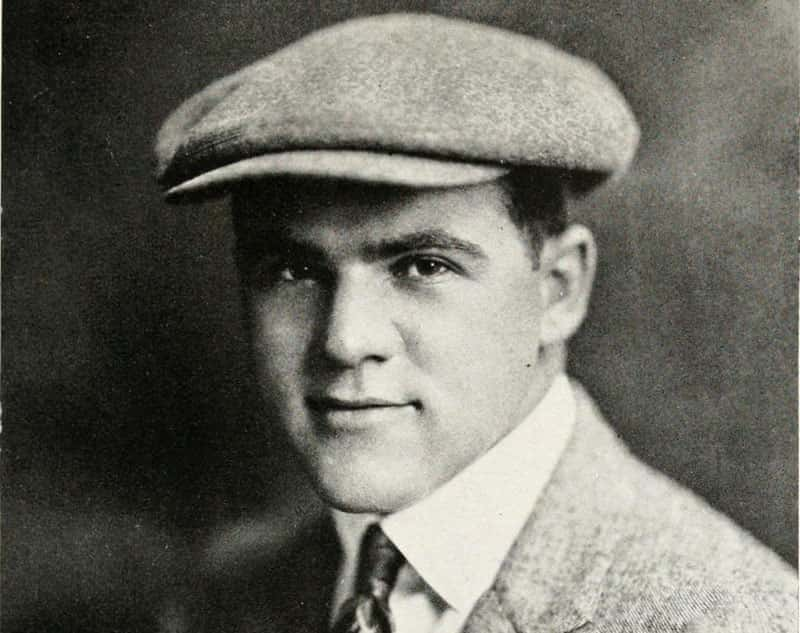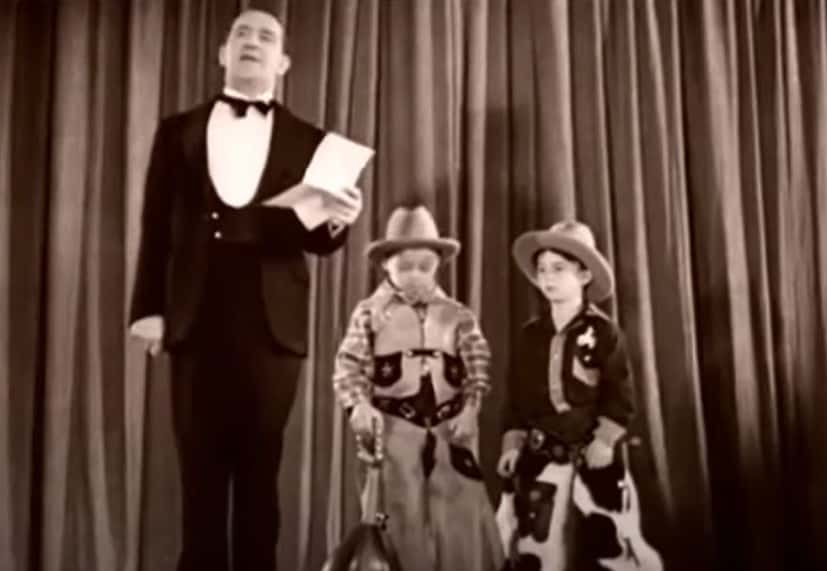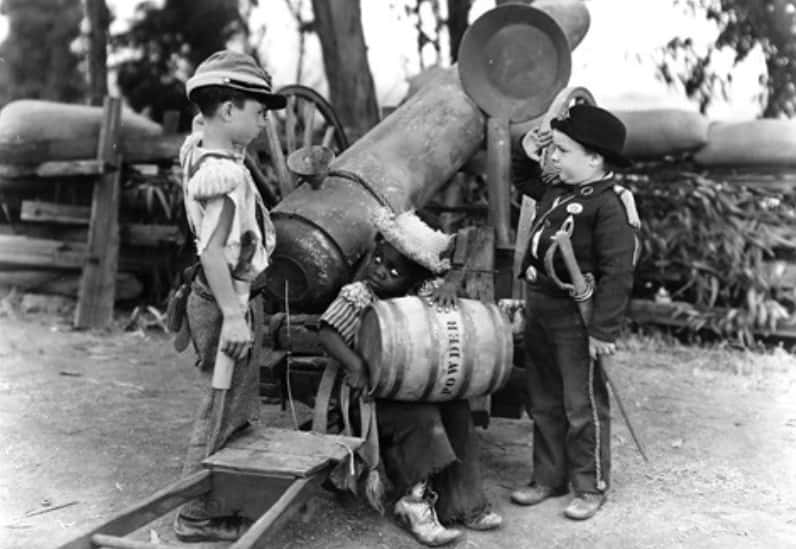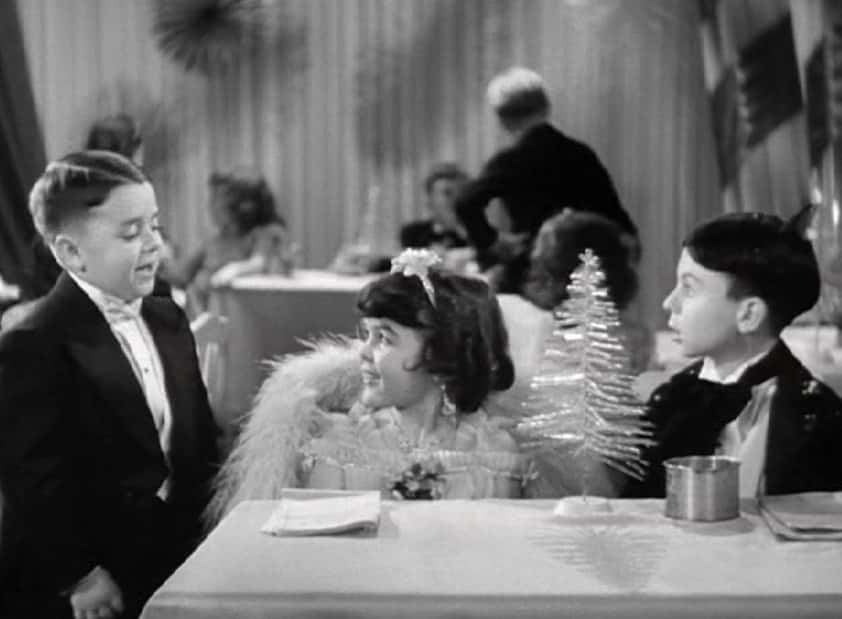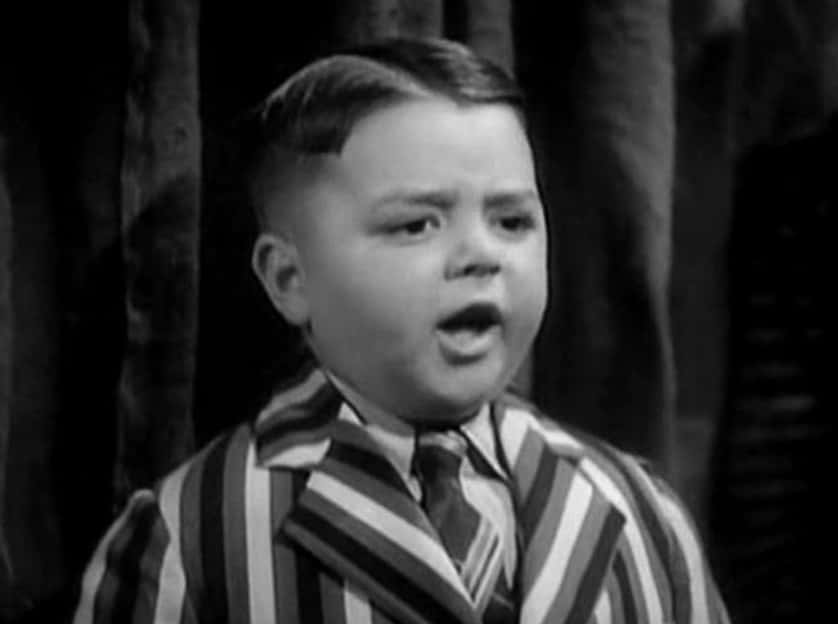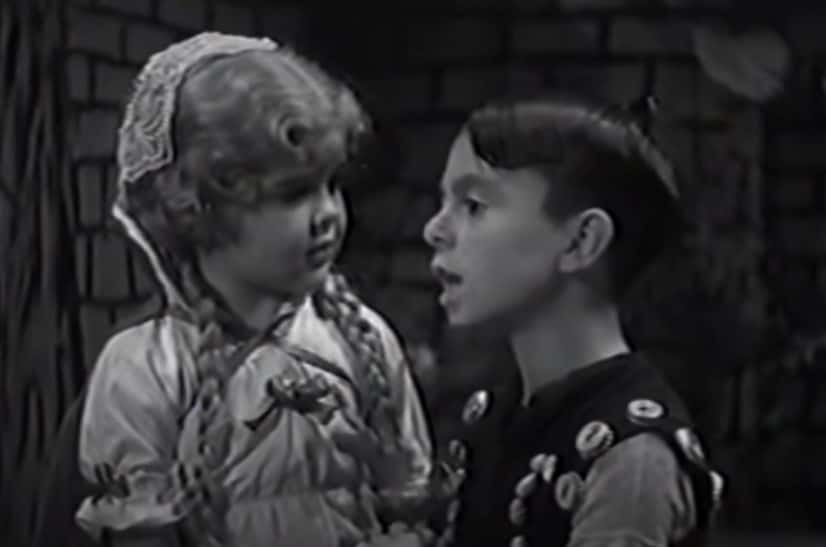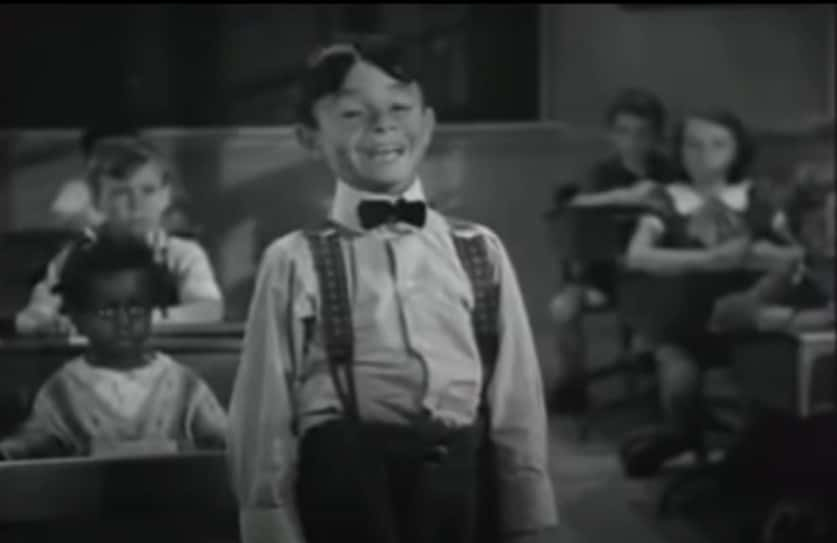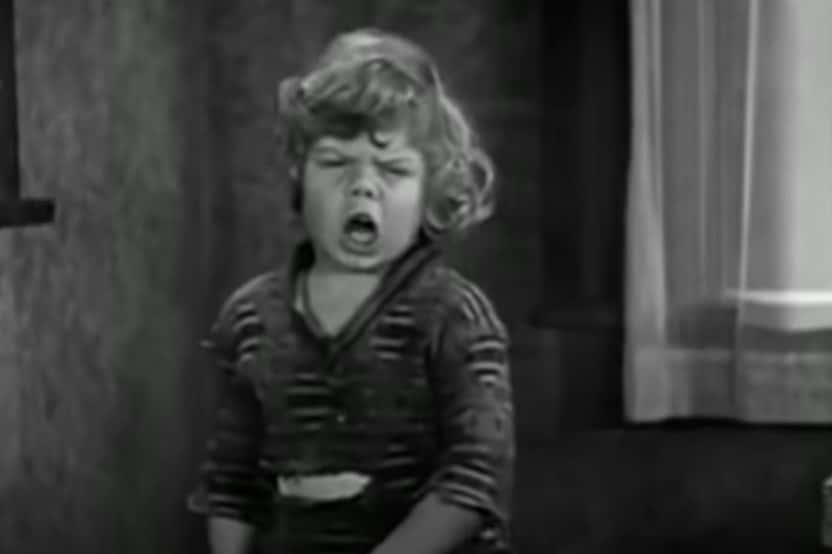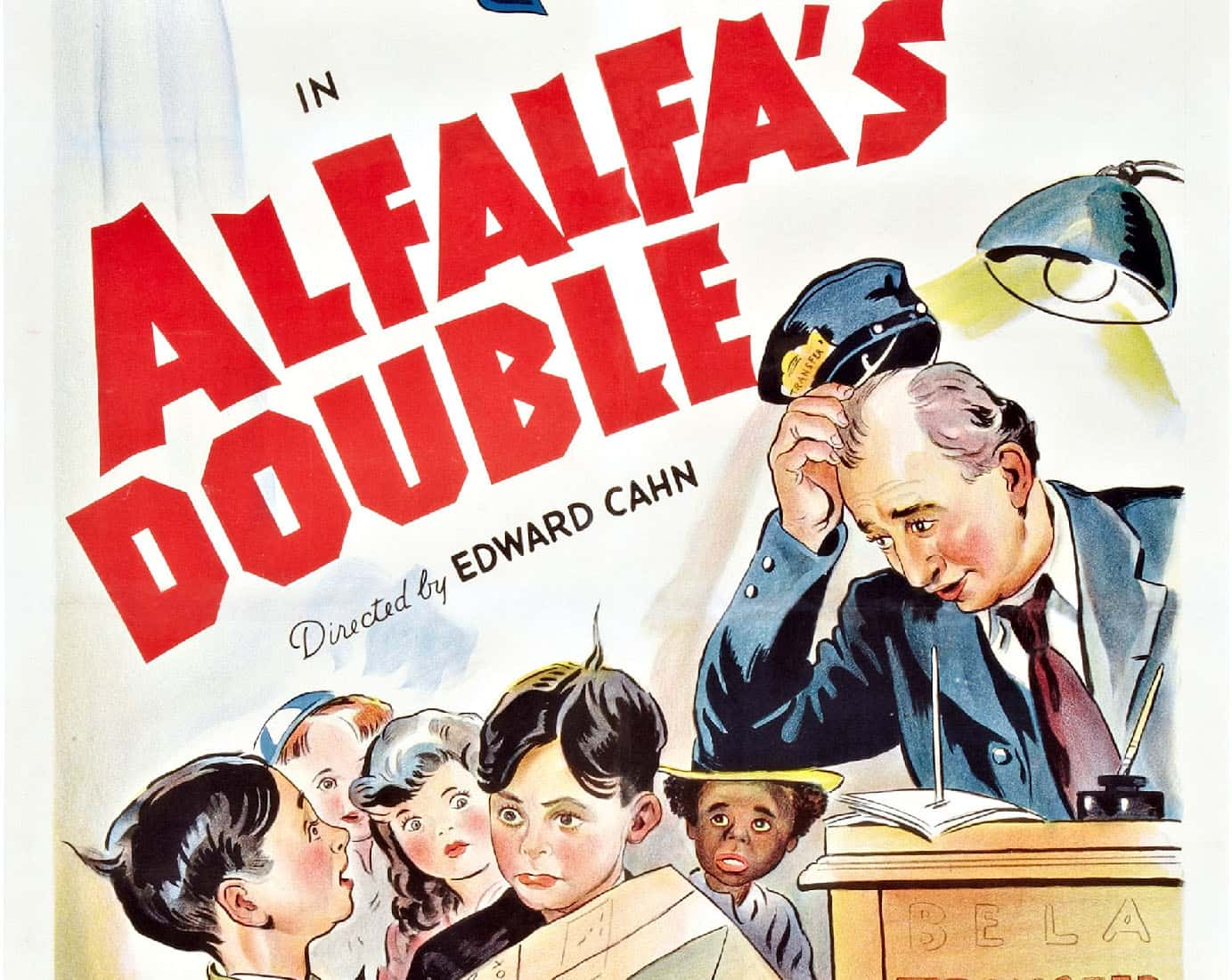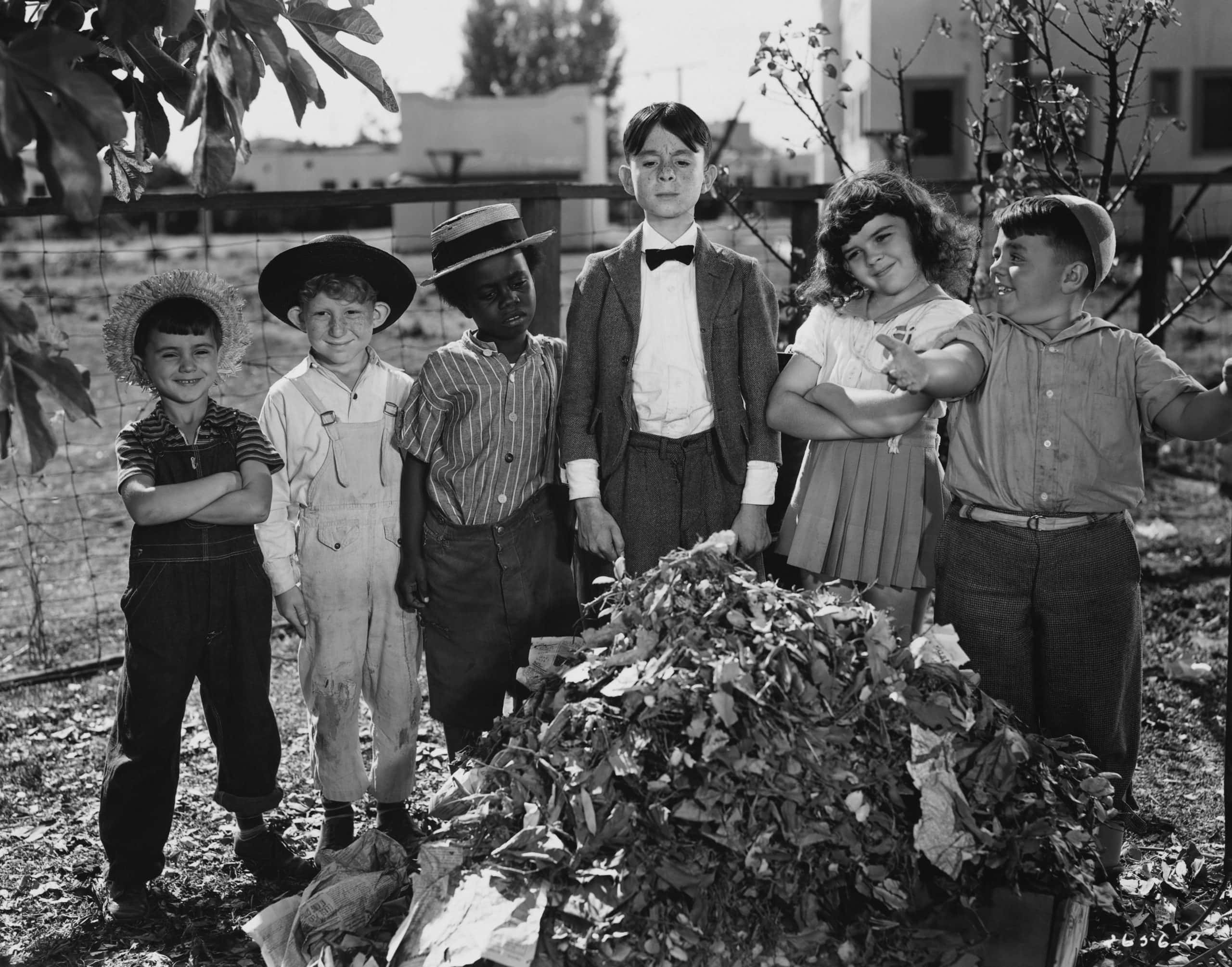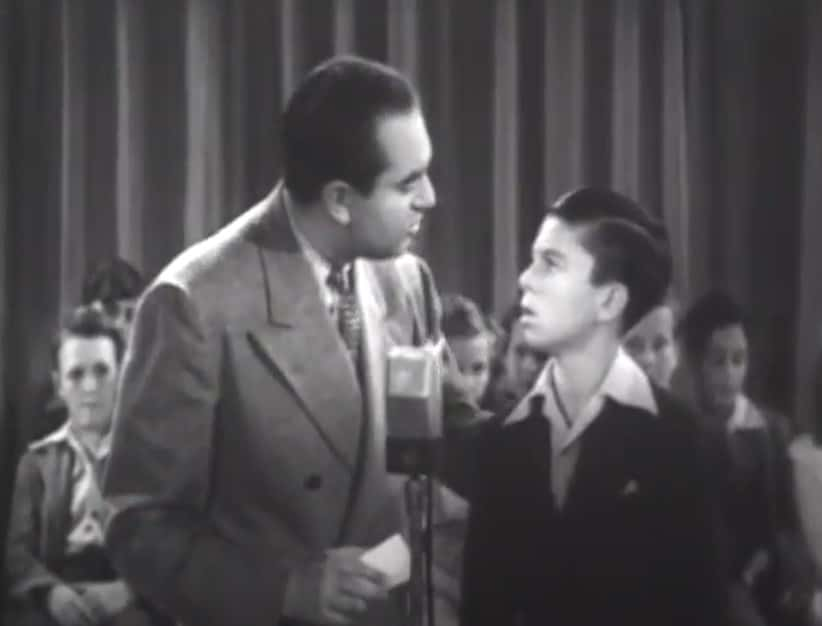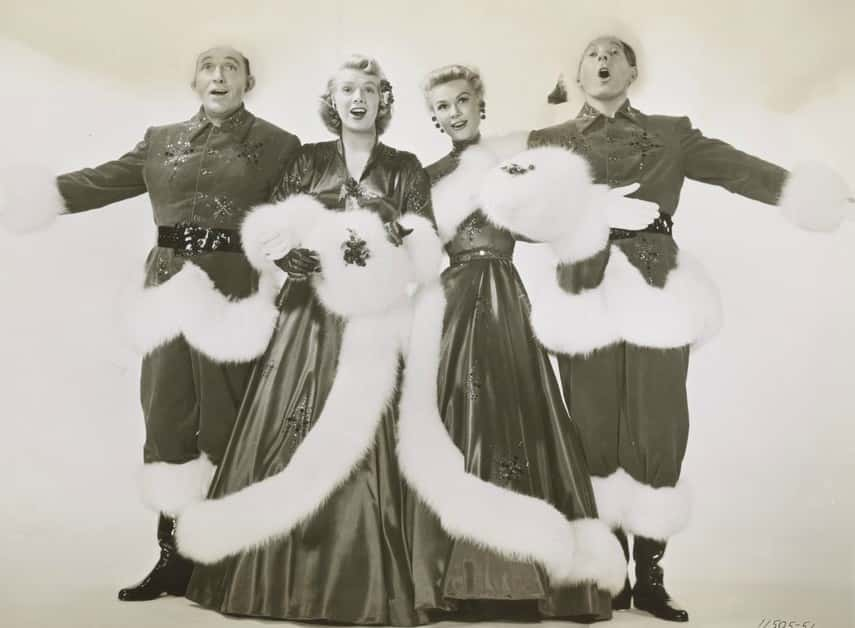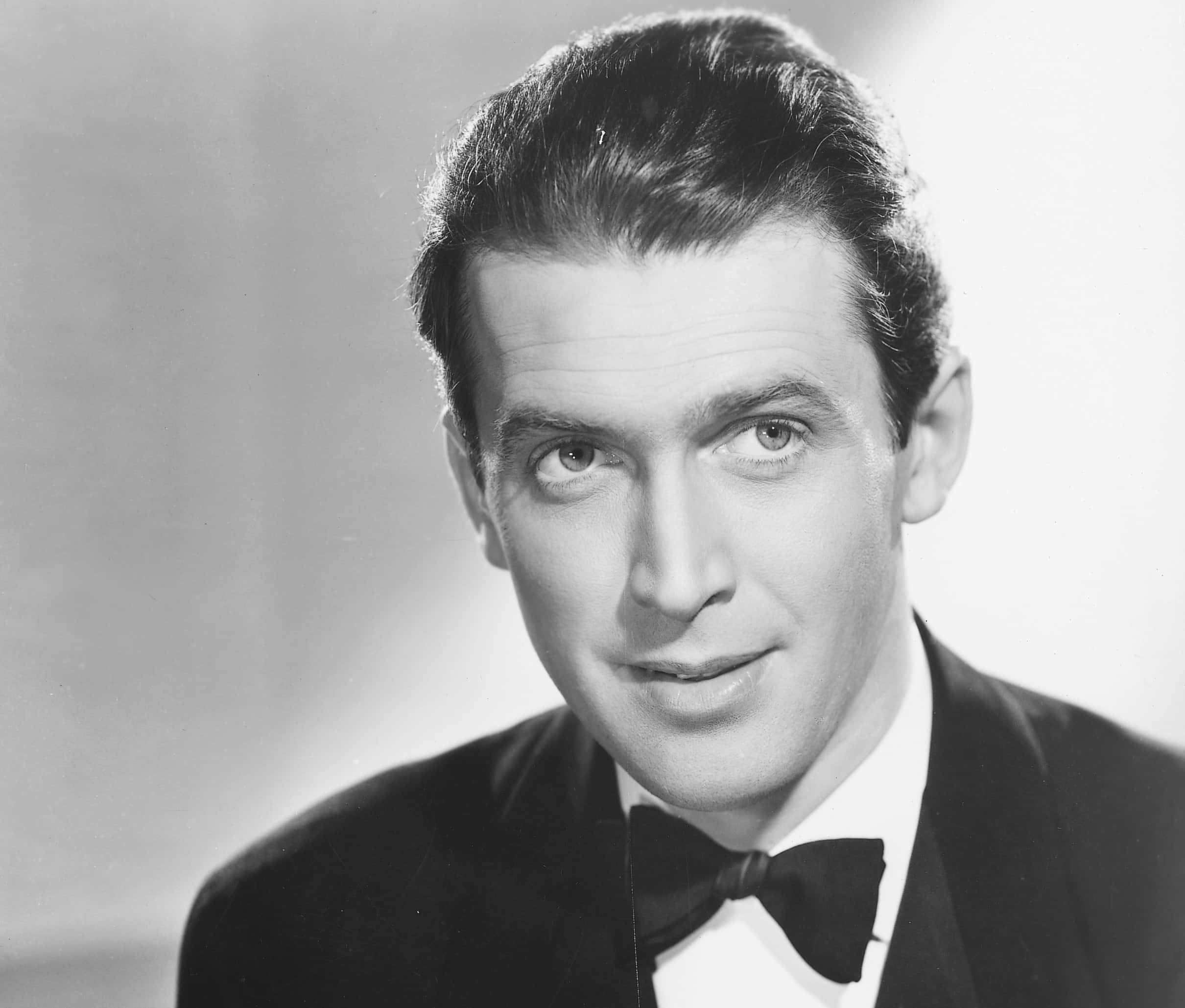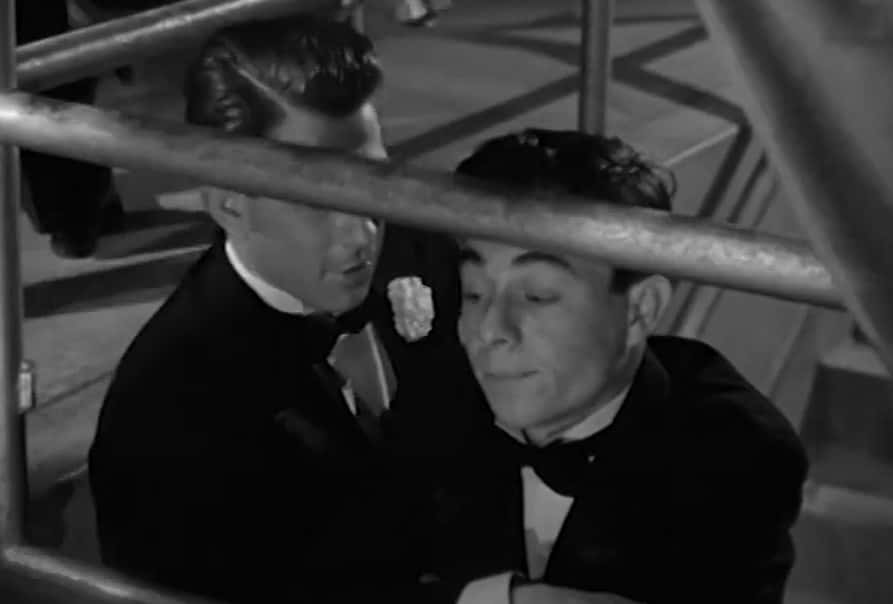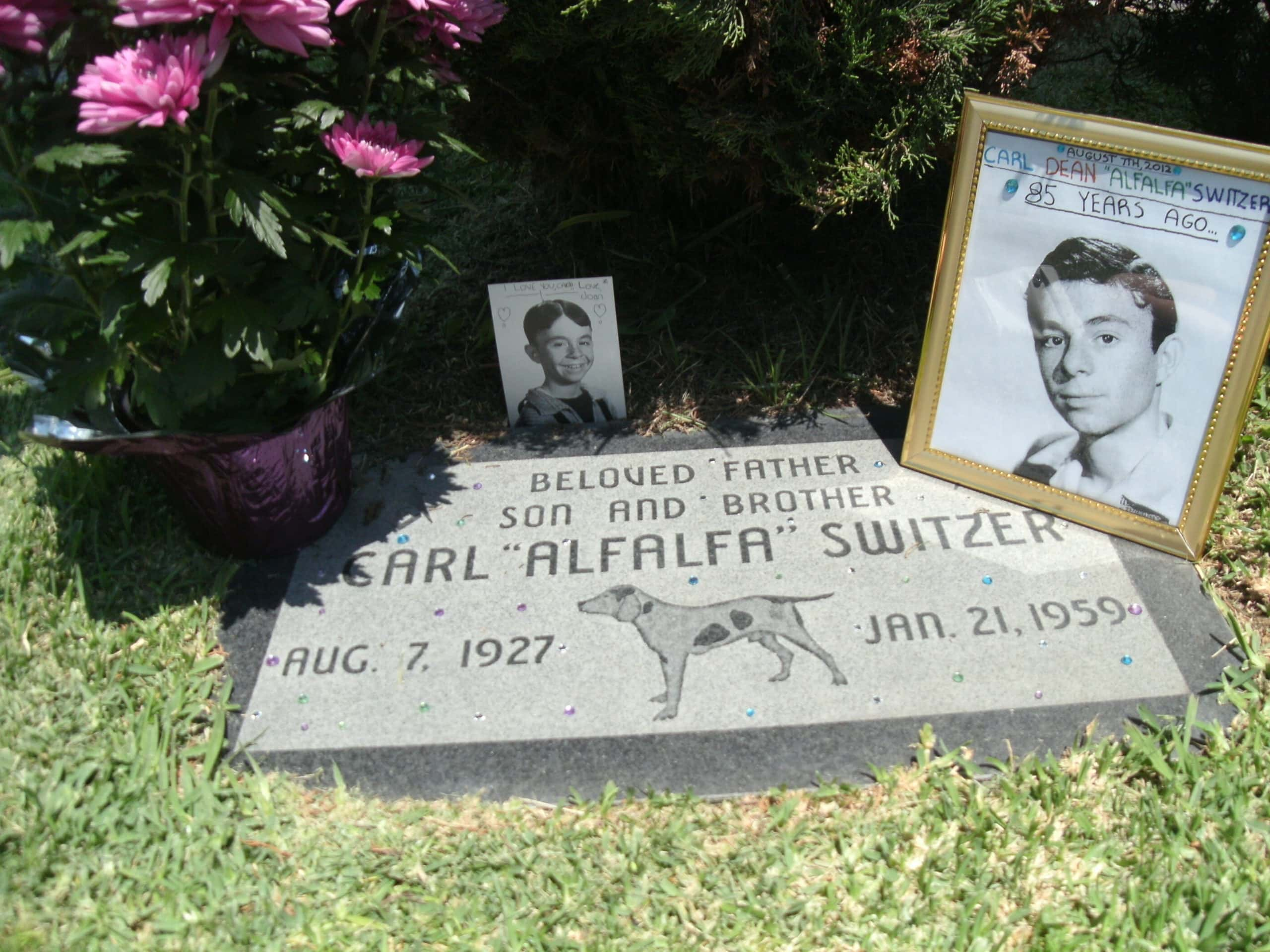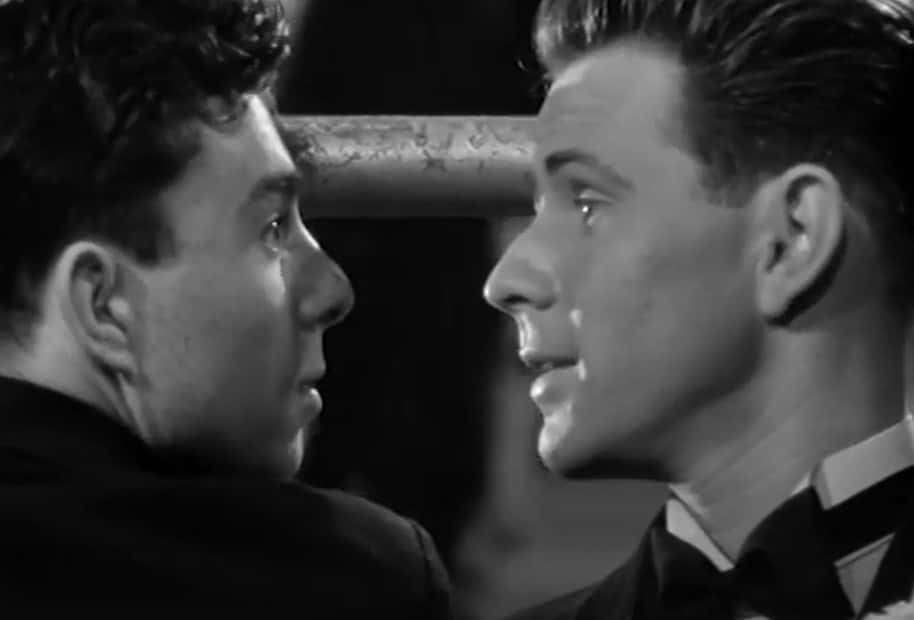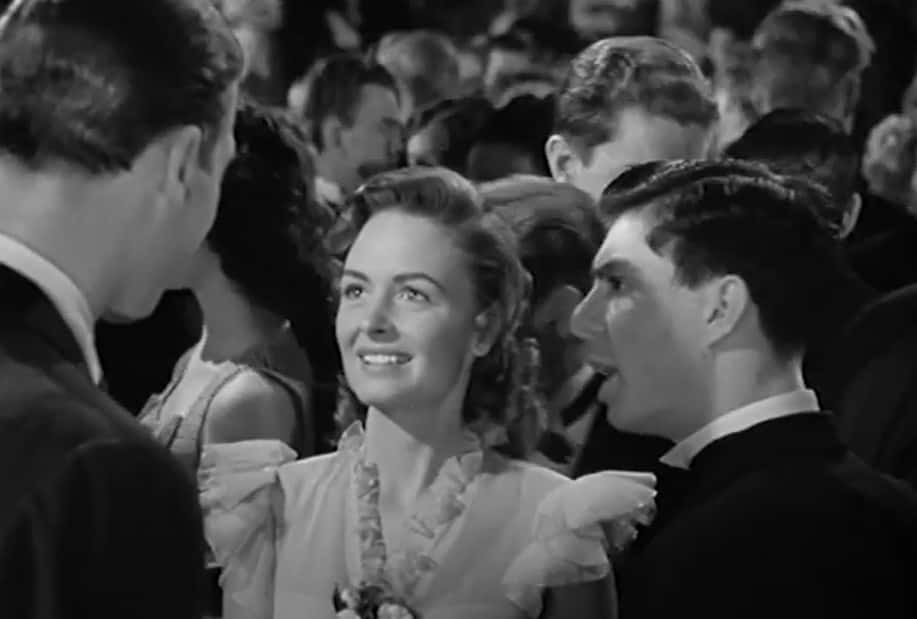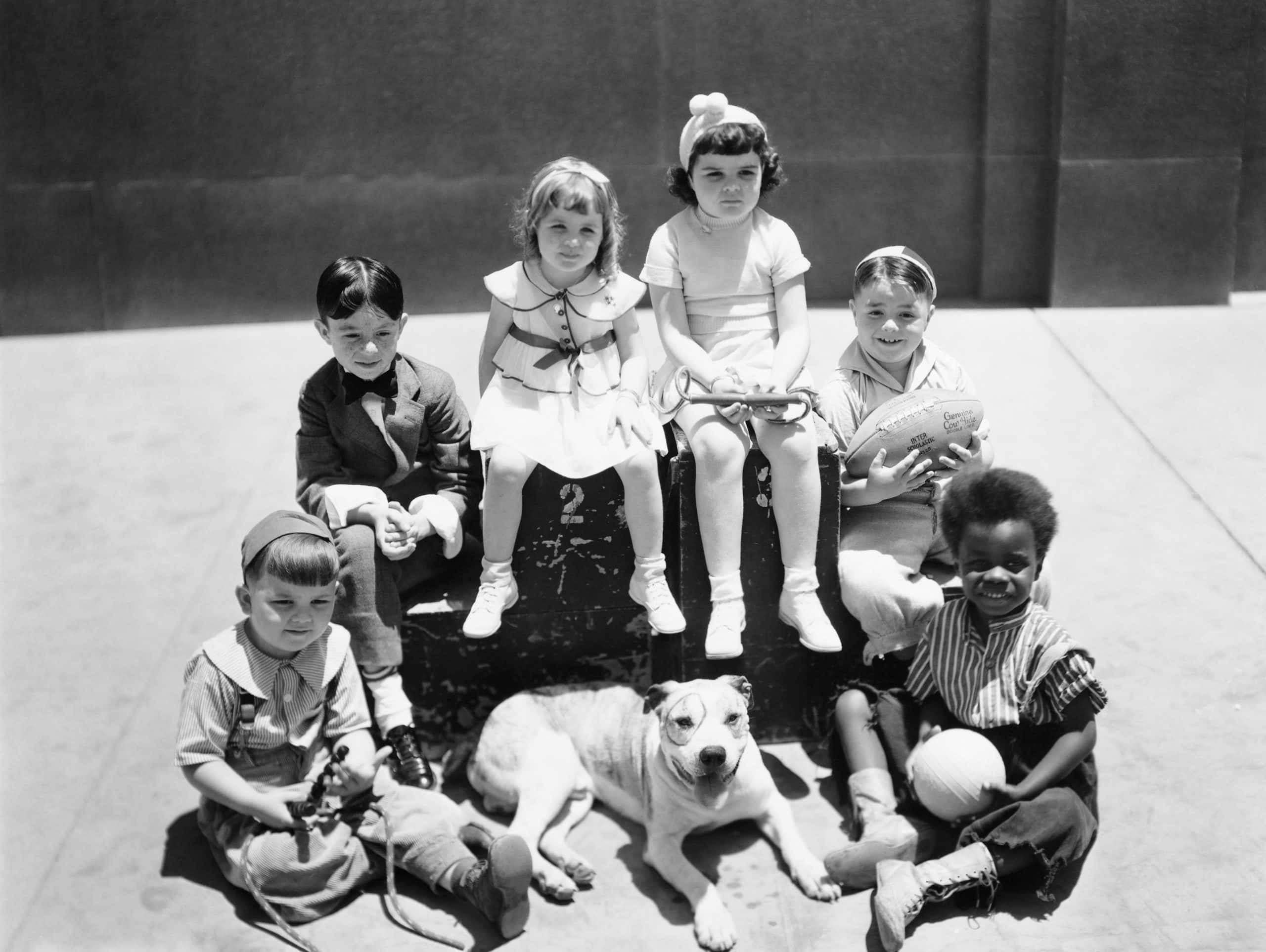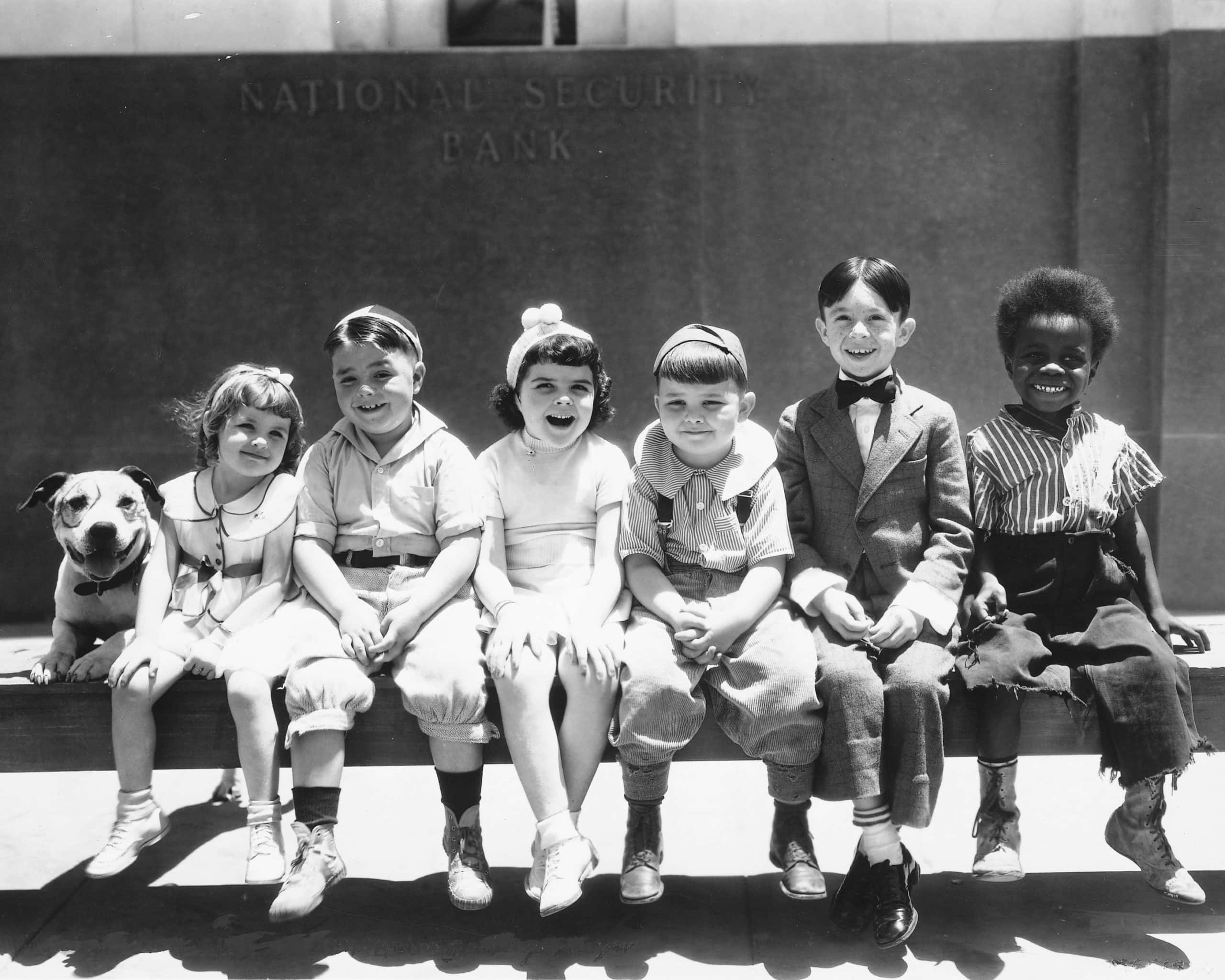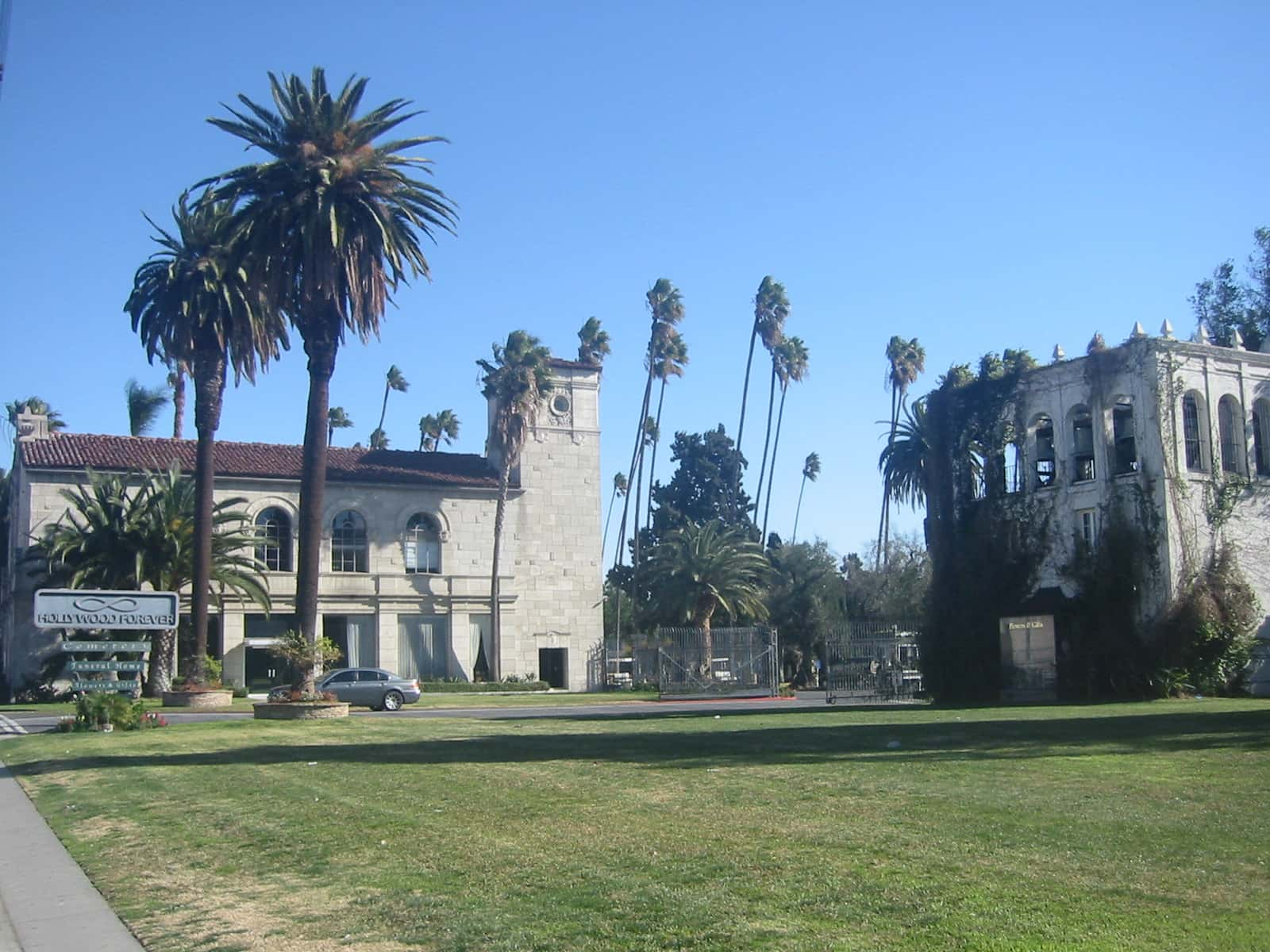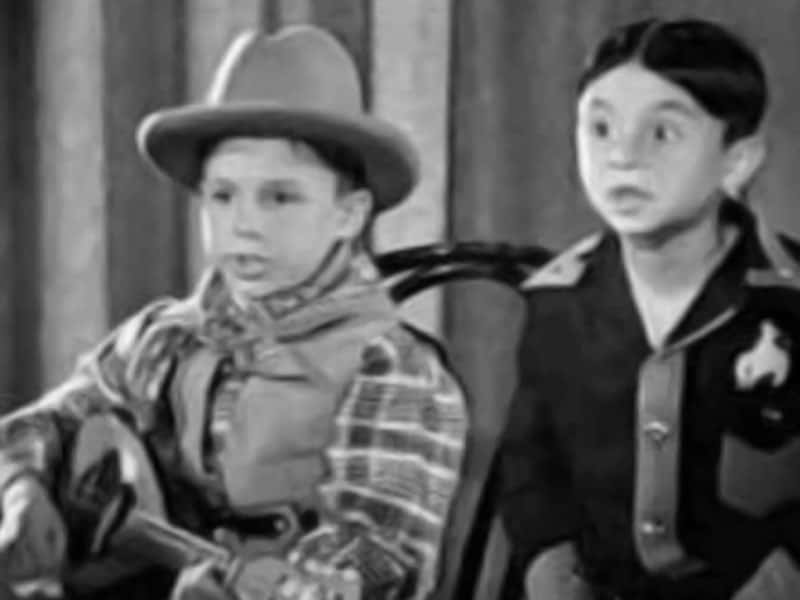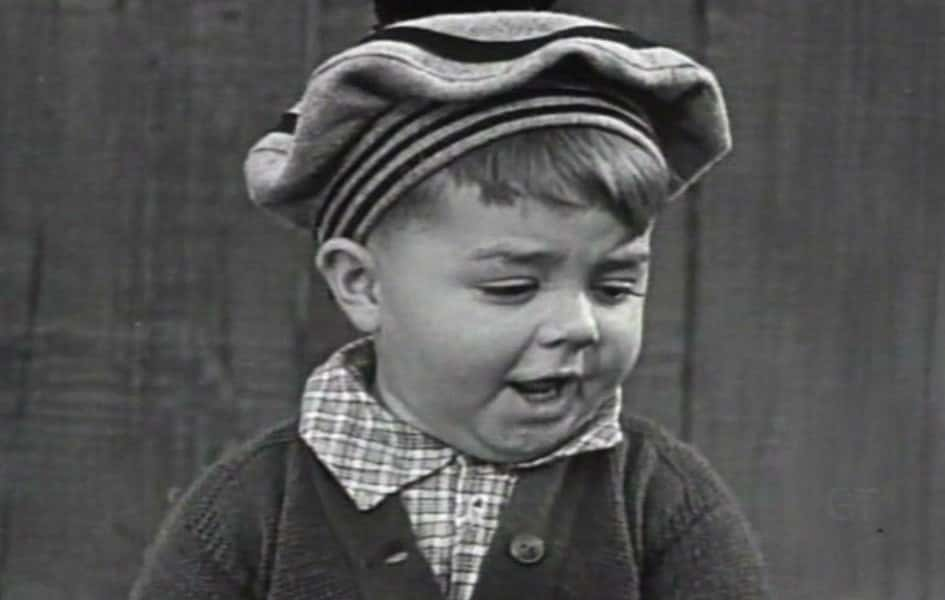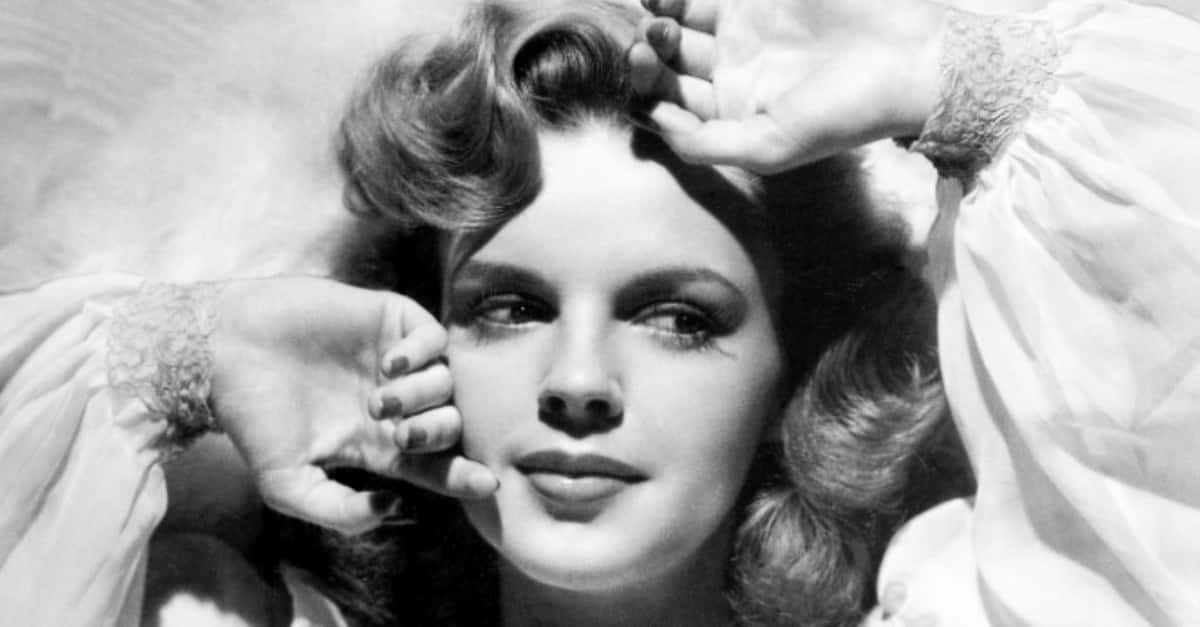Carl Switzer’s spontaneous discovery by a Hollywood producer reads like entertainment folklore. His exit, however, sounds more like a cautionary tale. Poor Switzer went from being one of the most recognized faces in television—Alfalfa in Our Gang—to pilfering trees from the forest to sell at Christmas time. It was a steady, but not so slow decline from child star to adult felon. His short, tragic life was an absolute train wreck—but, as the story unfolds, just try and look away.
1. He Loved Music
Paris was the birthplace of American actor Carl Switzer—except it was the one in Illinois, not France. The date was August 8, 1927, and Switzer was one of four children. All four kids had one thing in common: a love of music and performing. Wait, that’s two things. Regardless, these kids had oodles of talent and could really put on a show.
All they needed was a little exposure.
2. They Were Spontaneous
The Switzer family made a trip to sunny California and were taking a film studio tour when they ducked into a cafe for refreshment. Carl and his brother Harold did what they did best: put on an impromptu show for the other guests. As luck would have it, the head of the studio walked by and took in the boys’ performance.
What happened next sounds like a Hollywood myth.
3. He Signed Them Both
The owner of the studio, Hal Roach, was completely bowled over by the boys’ ability and charisma. He wanted to sign both of them to Our Gang right there on the spot. Our Gang was a series of short films centered around a group of poor children, which later morphed into the TV show The Little Rascals. Once on the show, Harold became a side character named Slim or sometimes Deadpan.
Carl, on the other hand, had just one name: Alfalfa.
4. He Was Front And Center
Carl’s brother Harold didn’t do that well on Our Gang—he was soon relegated to the background in most of his scenes. Alfalfa, however, was soon delighting audiences. Ironically, Switzer’s musical ability wasn’t what helped him win audiences over. Strangely enough, it was actually his ability to hide his talent that made the character unforgettable...
5. He Switched Off The Talent
You see, one lovable aspect of Switzer’s Alfalfa was his terrible singing voice. Time and time again, Alfalfa would give his rendition of a Bing Crosby tune, but completely off-key. Of course, Switzer could have done it in perfect pitch if he’d wanted to. But audiences came to love his atonal renditions of popular songs.
There was something else that drove audiences wild about Alfalfa.
6. He Stood Out
The hair and wardrobe department on Our Gang had an inspired idea about how Switzer should look as Alfalfa. They fashioned an incredible cowlick that stuck straight out from his head. Along with Switzer’s natural freckles, it made Alfalfa stand out amongst the other kids. The problem was, he was starting to stand out more than Our Gang’s star.
Everything had worked out for Carl Switzer thus far—but there was trouble brewing.
7. He Took Over
Before Switzer joined Our Gang, the show centered on the good-natured Spanky, played by George McFarland. Switzer’s arrival as Alfalfa was soon pulling focus away from McFarlane's character. Fans responded and soon Alfalfa was everyone’s favorite Our Gang character. This was great for Switzer, but what did it do for the friendship between the two boys?
8. They Were Just Kids
Remember, Switzer and MacFarlane were just ten-year-old boys when they were making Our Gang. They likely were unaware that they were rivals for celebrity—or didn’t care. The two remained friends and refused to heed to the pressure that being on TV served them. Their fathers, on the other hand, didn’t show such restraint.
9. They Argued Constantly
Switzer’s father made it his business to ensure his son got the treatment he deserved. This meant enough screen time and lines. Of course, Spanky’s father also had an interest in the show and wanted his son to retain his position as the show’s star. The fathers reportedly argued constantly about their son’s screen time and something else: salaries.
Amidst all the bickering, Switzer just wanted to have fun. Unfortunately, fun was in short supply on set—so he did his best to make it himself.

Sign up to our newsletter.
History’s most fascinating stories and darkest secrets, delivered to your inbox daily. Making distraction rewarding since 2017.
10. He Was A Prankster
While their fathers were arguing, the two boys were mostly doing what boys did, which included practical jokes. Switzer in particular was fond of holding up filming with not only practical jokes but also being abrasive and difficult to work with. Some may put this down to “boys being boys,” but sometimes, Switzer went too far.
11. His Jokes Hurt
Switzer was always looking for ways to prank his co-stars and the one-upmanship, at least on one occasion, had dangerous results. Switzer got it into his head to hide fish hooks in Spanky’s pants pockets. When MacFarlane sat down, the fish hooks dug into his backside. The wounds were so deep that MacFarlane required stitches after this prank.
Even though Switzer was making enemies with his pranks, he did manage to make a friend.
12. He Was A Frenemy
Switzer’s best friend on the show wasn’t Spanky; it was actor Tommy Bond. Bond played Butch, who was Alfalfa’s nemesis on the show. Bond, who went on to be the first actor to portray Superman's sidekick Jimmy Olsen, later said that he and Switzer were friends for one good reason: Because their characters were enemies, they weren’t competing for screen time.
Switzer didn’t really have to worry about screen time—the producers were doubling it.
13. He Was A Twin
In one episode of the series, Switzer played two roles: Alfalfa and Cornelius. Alfalfa meets Cornelius by chance and the pair realize they look identical. The only difference was that Cornelius just so happened to be rich. In the episode, which was loosely based on The Prince and the Pauper, they used a double-exposed photo to show Alfalfa and Cornelius together.
Something strange happened, however, when the photo got into the wrong hands.
14. He Needed Proof
Years after they stopped making Our Gang, various adults tried to claim they were members of the cast. One impressive cheater actually said he played three different roles! But the Alfalfa fake was the most ingenious. He got a hold of the double-exposed photo featured in the "Alfalfa’s Double" episode and used it as proof. Here, he said, this proves I was part of Our Gang.
It didn't work, but it was worth a shot! Unfortunately for our pal Alfalfa, though, the good times were about to stop rolling.
15. He Didn’t Age Well
All good things must come to an end, and this was true about Switzer’s job on Our Gang. He was starting to look a little old to be part of the gang, so Roach set him free. It was 1940 and Switzer was just 12 years old. Surely he had a wonderful life in show business ahead of him. After all, he was one of the most recognized child actors in America. What could go wrong?
Apparently, a lot.
16. He Offered Support
Switzer followed up his career as the number one kid on Our Gang with…well…a bunch of small supporting roles. Embarrassingly, Switzer even appeared in an Our Gang rip-off called Reg’lar Fellers. His career wasn’t moving forward, it was going downhill. If that wasn’t bad enough, 1942’s Johnny Doughboy would cement Switzer’s reputation as a 15-year-old has-been.
17. He Nailed It
In 1942, Switzer nailed an audition for the musical comedy Johnny Doughboy, but nailing it probably wasn’t that hard. You see, the role was for a child actor who couldn’t make it as a young adult performer. That may have been a little too close to home for Switzer. To make matters worse, he met up with an old friend on the set.
It turns out Spanky portrayer, George MacFarlane, was also there playing…you guessed it…another has-been child star.
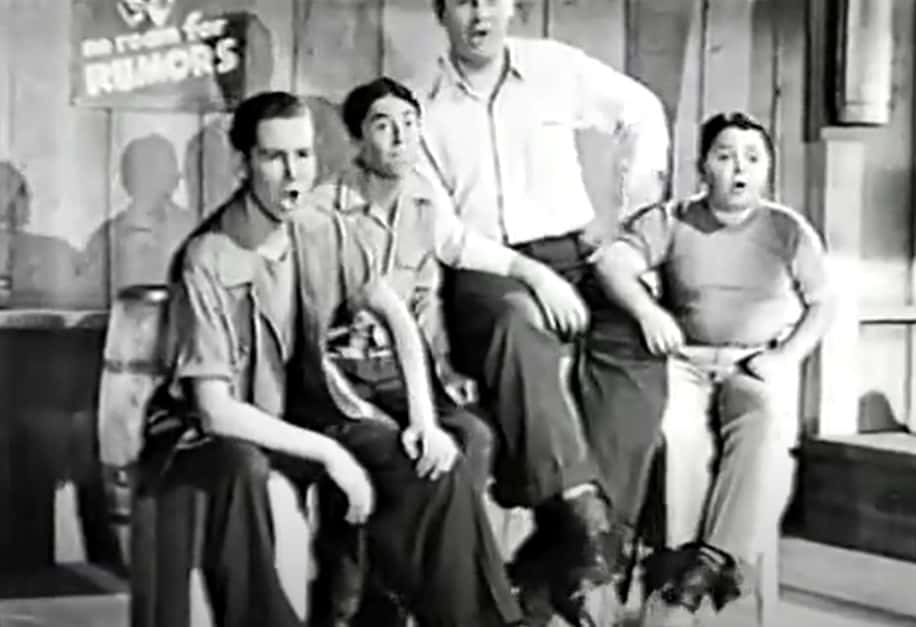 Johnny Doughboy (1942), Republic Pictures
Johnny Doughboy (1942), Republic Pictures
18. He Had A Deja Vu
In 1944, when he was 17 years old, Carl Switzer appeared in The Great Mike. Here, Switzer plays the lead character’s goofy friend and has lines that mostly amount to things like “Gee willikers.” This sounds a lot like what Switzer was doing as Alfalfa back on Our Gang. It seemed that elevating himself out of the Our Gang mode was going to be a rough go for Switzer.
He was miserable—but it was going to get a whole lot worse.
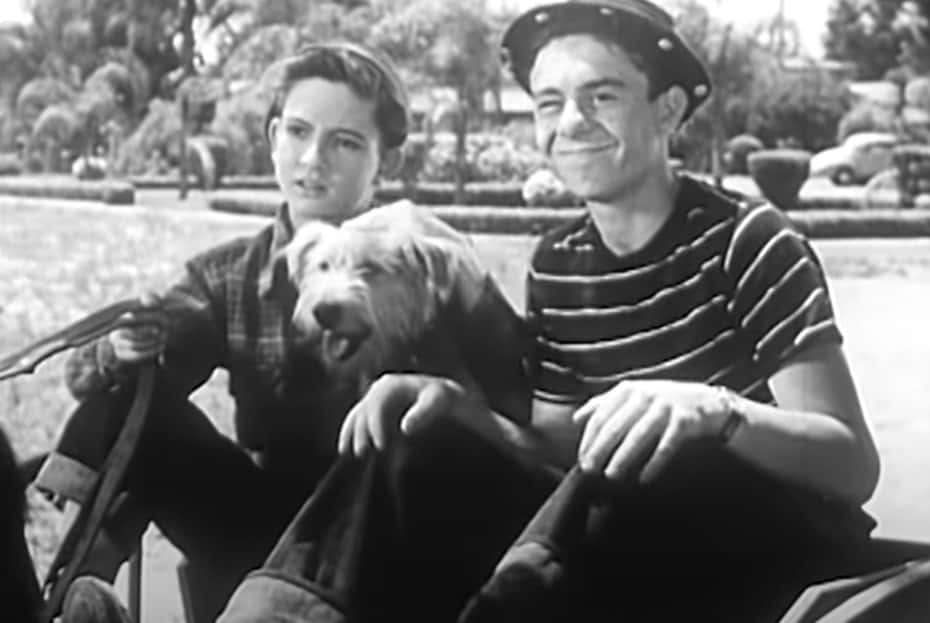 The Great Mike (1944), Producers Releasing Corporation
The Great Mike (1944), Producers Releasing Corporation
19. Oops He Did It Again
When Switzer was 20 years old, he was still trying to downplay his role in Our Gang. It certainly wasn't helping him get any great film roles. So what he did next is surprising. He again reprised his Alfalfa character in PRC’s Gas House Kids, which was about, you guessed it, a bunch of kids who get into trouble. Switzer even used Alfalfa’s trademark laugh generator: singing off-key.
After this humiliating role, Switzer had finally had it with any reference to Our Gang.
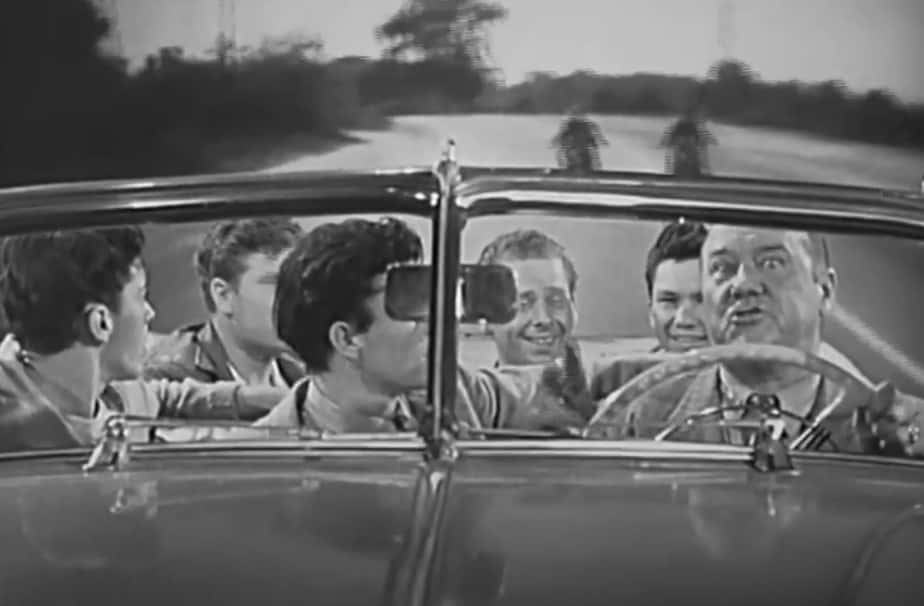 Gas House Kids Go West (1947), Producers Releasing Corporation
Gas House Kids Go West (1947), Producers Releasing Corporation
20. He Got Rid Of Alfalfa
To make sure audiences—and producers—forgot all about Alfalfa, Switzer did two things. He updated his resume, changing all references to Our Gang to simply read: “M-G-M short project.” The other thing he did seems like something he should have done a long time ago. He stopped calling himself Carl “Alfalfa” Switzer. Believe it or not, in all movies until this time this was how his name appeared in credits.
But would it be enough to save his career? Unfortunately, it was too little, too late.
 Gas House Kids Go West (1947), Producers Releasing Corporation
Gas House Kids Go West (1947), Producers Releasing Corporation
21. He Slowly Vanished
Even with Alfalfa off his resume, the following years saw Switzer still appearing in very small roles. These include a part simply listed as “Bus Boy.” In the Bing Crosby musical White Christmas, things got even worse: Switzer appears only in a photograph. These weren’t the roles of a successful actor and Switzer knew it. Maybe movies weren’t going to do it for him. Well, there was always television.
22. He Said Good-Bye
Switzer did a slew of TV shows from 1952 and 1955, but nothing really stuck. He did return to the big screen, but again in tiny roles. In The Ten Commandments, Switzer was simply called “Hebrew Slave.” His final role, however, was in a hugely successful film: The Defiant Ones. Again, Switzer’s role was small, but the film garnered a number of Academy Award nominations. It was a fine way for Switzer to say goodbye to Hollywood.
But if he was saying so long to acting, what was he saying hello to?
 The Defiant Ones (1958), Lomitas Productions
The Defiant Ones (1958), Lomitas Productions
23. He Had Celebrity Clients
Switzer, in addition to acting, had another vocation: He bred and trained hunting dogs. Because of his connection to Hollywood, he had some noteworthy clients. Alfred Hitchcock favorite James Stewart was a client, as was Henry Fonda. He also worked for his godparents: the country singing duo Roy Rogers and Dale Evans.
As we’ll soon see, however, it was this hobby that brought on Switzer’s early and tragic demise.
24. He Ran Dry
In 1954, Switzer made a massive mistake. He married a woman who he’d only gone out with for just three months. Her name was Diantha Collingwood, and the two met on a blind date. Collingwood was from a wealthy family who dealt in grain. By 1956, things weren’t looking too good for the newlyweds: Collingwood was pregnant and Switzer’s acting career money was close to running out.
It was a desperate time, and it needed a desperate measure.
25. He Received An Odd Offer
Switzer’s mother-in-law wasn’t happy with her daughter’s state of affairs. She was trying to raise a child while living off of Switzer’s ever-decreasing savings left over from his acting days. The truth was that Switzer had no prospects, and his mother-in-law knew it. So, she proposed something unorthodox: She gave them a farm.
26. They Hit The Country
Switzer, his wife, and his child made an abrupt move from California to Kansas, where they were going to give farm life a try. Maybe Switzer was imagining being the lord of the land, but the truth was that this former child star was just going to be a glorified farm worker. Switzer hated it, and within a year he packed it in—but that wasn't all he'd had enough of.
27. He Was Through
Switzer wasn’t just through with farm life, he was also through with marriage and being a father. In 1957, he divorced his wife and returned to single life. He moved back to California and…well…had a hard time of it. In 1958, Switzer was minding his own business and getting into his car. That’s when he heard the unmistakable sound of a car backfiring.
Or was it something else?
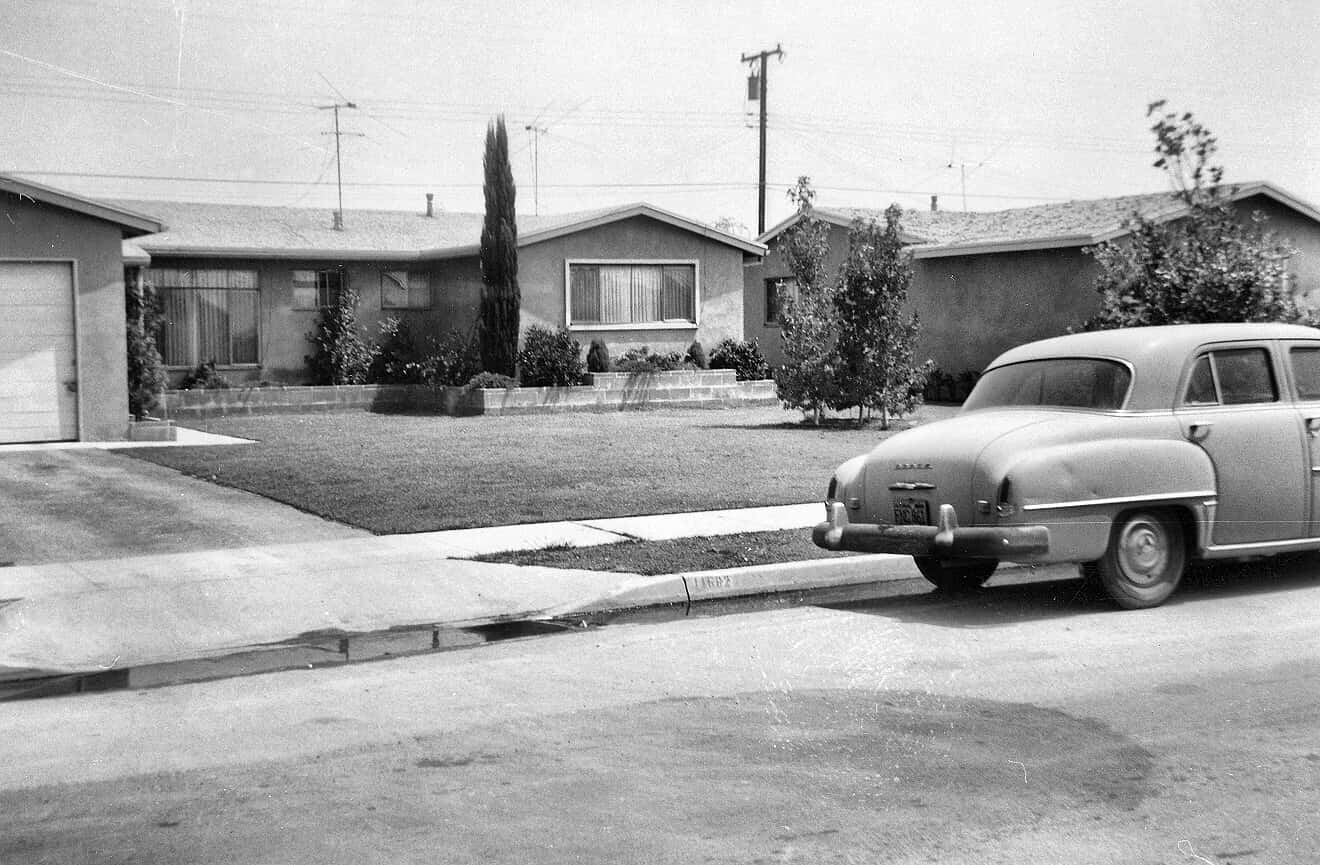 Flickr, Orange County Archives
Flickr, Orange County Archives
28. He Was Innocent
When Switzer heard the car backfiring, he also felt something: an intense pain in his right arm. It turned out that the loud blast wasn’t a car backfiring after all. Switzer looked down and saw blood all over his clothes. He'd been shot in the arm. Officers looked everywhere for the shooter and could find no one. Was this simply a case of being at the wrong place at the wrong time? Or something more sinister?
The truth is, we'll never know. Officers never found a shooter, so we still have no idea who shot Switzer. At least, the first time...
29. He Started A Business
In December of the same year, Switzer took a drive through the spectacular Sequoia National Forest. Was he a great lover of nature? Not really. You see, Switzer was hunting—not for animals, but for trees. Switzer thought it would be a great idea to chop down pine trees and sell them to families as Christmas decorations—all of which was completely unlawful. The authorities caught him, and he received a sentence of one year of probation and a fine of $225.
Except Switzer was flat broke and couldn’t pay the fine. That was an even bigger problem than he realized.
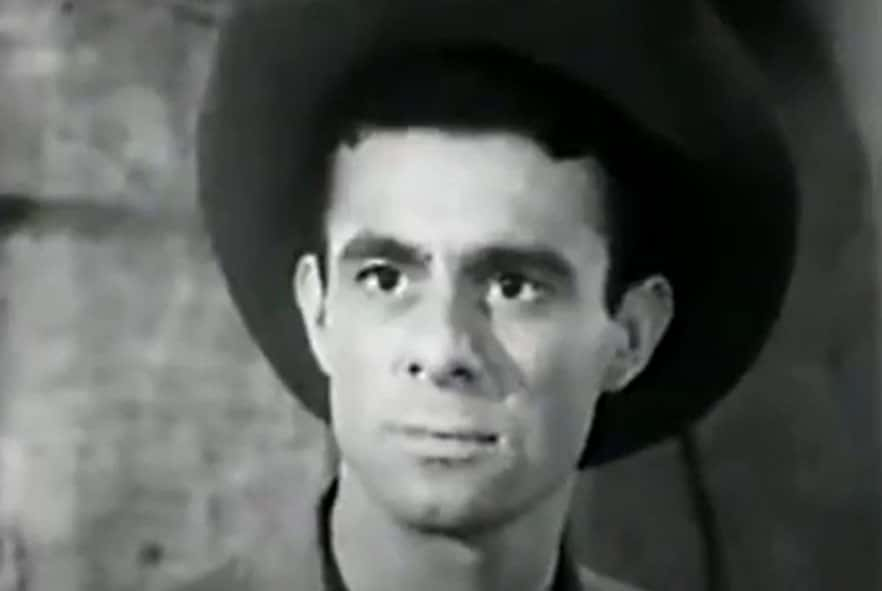 Mysteries and Scandals - Alfalfa and the Little Rascals (1998-), E!
Mysteries and Scandals - Alfalfa and the Little Rascals (1998-), E!
30. He Needed Cash
In need of some extra cash, Switzer turned to an old vocation of his: dog training. This was something Switzer had done off and on for years. In order to pay his fine, Switzer agreed to help a man train his dog. The man was Moses Samuel “Bud” Stiltz, and Switzer had met him while working for Roy Rogers. Like most of Switzer’s escapades, there was soon trouble.
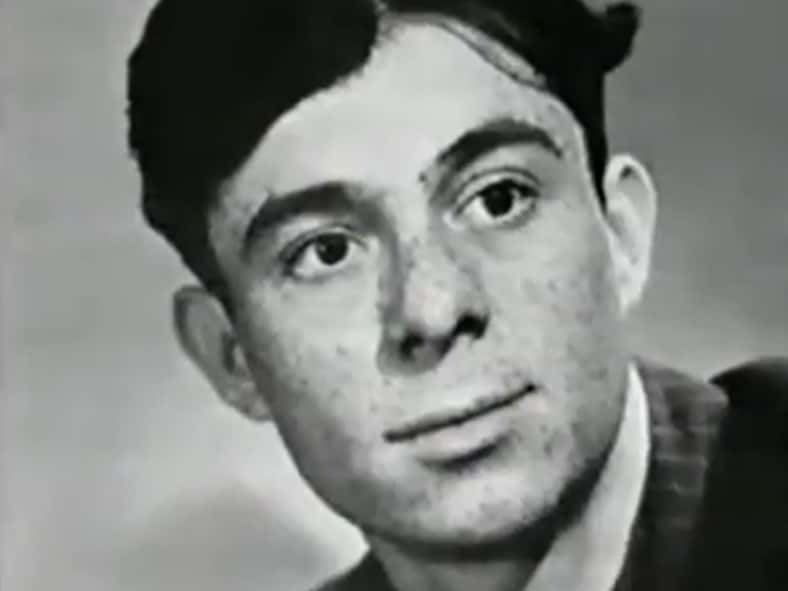 Mysteries and Scandals - Alfalfa and the Little Rascals (1998-), E!
Mysteries and Scandals - Alfalfa and the Little Rascals (1998-), E!
31. He Lost It
While Switzer was training Stiltz’s dog, the dog saw a bear and ran off in pursuit. Switzer made a vain attempt to recapture it, but he couldn’t keep up. The horrible truth dawned on Switzer: he’d lost a dear and valuable pet. When Switzer told Stiltz what had happened, the dog owner was furious. He told Switzer that he had two choices: bring the dog back or pay him what it was worth.
The dog was absolutely AWOL, so now Switzer was even further into debt. Yet somehow, he continued to spiral.
32. He Had A Solution
Switzer’s solution to the missing dog was to throw more money at the problem—money that he didn’t actually have. Switzer took out advertisements in the local newspaper, which offered a reward of $50 for anyone who found the dog and brought it to the bar where Switzer was working. A frantic Switzer went to the bar and waited.
But what were the chances that someone would actually find this missing dog?
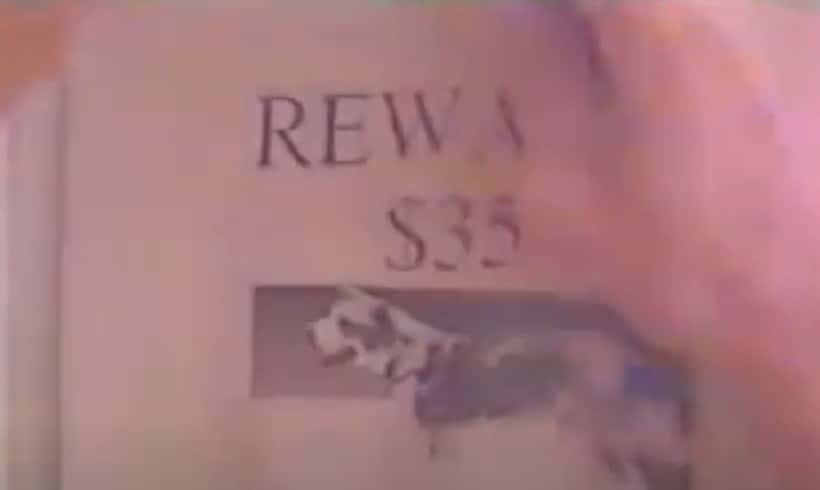 Mysteries and Scandals - Alfalfa and the Little Rascals (1998-), E!
Mysteries and Scandals - Alfalfa and the Little Rascals (1998-), E!
33. He Couldn’t Believe His Eyes
Switzer couldn’t believe his eyes when the bar door opened and in walked the missing dog. Of course, behind the dog was the rescuer, who quickly demanded the reward. Switzer gave the man all the money he had: $35 in cash. The remaining $15 he gave him in bottles of spirits from the bar—one of the perks of working there. Switzer returned the dog to Stiltz: problem solved.
Or so it should have been.
34. He Wanted His Money
A few days later, Switzer got to talking with a buddy, Jack Piott. The two men were discussing the whole dog debacle, and they came up with an opinion. They thought it wasn’t right that Switzer had to pay the reward. They thought that the dog’s owner, Stiltz, needed to pay Switzer back—at least the $35. The two men decided that there was no time like the present—they went straight to Stiltz’s house.
Switzer didn't know it yet, but he'd never return home alive.
35. They Came To The Door
Stiltz lived in Mission Hills with his wife, Rita Corrigan, and his three stepchildren. Switzer and Piott made their way to Mission Hills, located the house, and stepped up to the door. The two men were pretty charged up. They wanted the $35 and they weren’t leaving without it. What happened next? Well, that depends on who you believe.
36. He Threatened Him
Stiltz’s story has Switzer and Piott threatening him before they even got into the house. Apparently, they were pounding on the door and shouting, “Let me in! I’ll kick the door in!” Somehow the two men entered the house, and a struggle began. Stiltz didn’t know who it was, but either Switzer or Piott grabbed a glass clock and hit him over the head with it. This led Stiltz to make a tragic decision: He grabbed his firearm.
This little struggle over $35 was heading to a very dark place.
37. He Had No Choice
According to Stiltz, he and Switzer struggled with the firearm when suddenly: BANG, it went off. The blast almost hit Stiltz’s stepson. At this point, Stiltz says that Switzer threatened him with a large blade and said, "I’m going to kill you." Stiltz maintained that he had no choice but to shoot Switzer. He got him in the groin, which caused internal bleeding.
An ambulance came, but Carl Switzer passed even before he got to the hospital.
38. There Was Another Story
There was another version of what happened between Switzer and Stiltz that night that came from an eyewitness: Stiltz’s 14-year-old stepson, Tommy Corrigan. Corrigan told his version to the detectives, and there were definitely some disagreements with Stiltz’s narrative of the night. But then, when the trial began, something alarming happened—or actually didn’t happen: Corrigan was never asked to testify.
The judge bought Stiltz’s self-defense story and the case was quickly closed. Tommy Corrigan knew something, but the public was never going to find out what it was....at least not for a very long time.
 Mysteries and Scandals - Alfalfa and the Little Rascals (1998-), E!
Mysteries and Scandals - Alfalfa and the Little Rascals (1998-), E!
39. He Finally Spoke Out
Fast forward 42 years. It’s January 25, 2001, and little Tommy Corrigan—who was just 14 on the night in question—was now 56 years old and finally ready to give his version of the events. He said it all started with a knock on the door. Following the knock, a muffled voice said that it was “Western Union for Bud Stiltz.” Tommy’s mother, Rita Corrigan reluctantly opened the door and revealed not Western Union, but an inebriated Carl Switzer and his friend Jack Piott.
Things went south pretty quickly.
40. They Struggled
Switzer was complaining to Corrigan that her husband owed him $35 for the reward. He also said he would beat Stiltz up if he didn’t get his money. Stiltz quickly entered the room holding a .38-caliber revolver. The presence of a revolver probably shocked Switzer, but he grabbed for it anyway. The two men struggled over the revolver. The situation was extremely tense—Corrigan’s children were in the room and the revolver could've gone off at any second.
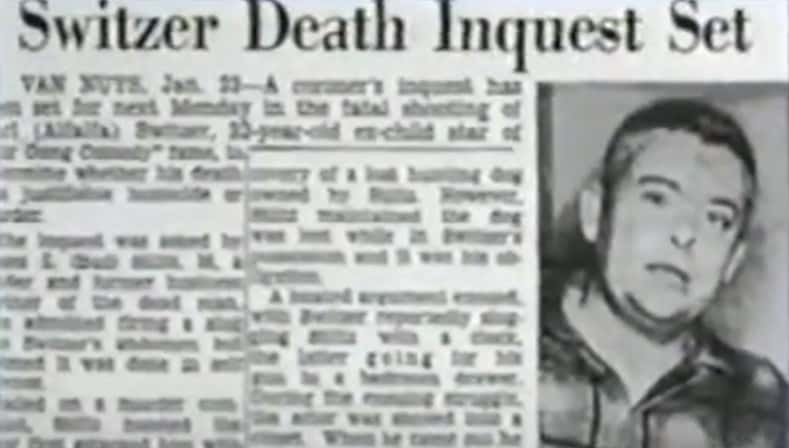 Mysteries and Scandals - Alfalfa and the Little Rascals (1998-), E!
Mysteries and Scandals - Alfalfa and the Little Rascals (1998-), E!
41. He Clocked Him
Piott saw that nothing good could come of the situation, so he looked around the room for something heavy to hit Stiltz with. His eyes fell on a glass clock. Piott took the clock and hit Stiltz over the head with it. Around the same time, the revolver fired. There was the sickening sound of shrapnel entering flesh—everyone froze.
It wasn’t clear who’d been hit.
42. They Were Distraught
Sadly it was young Tommy Corrigan who’d been hit. A fragment had lodged into his leg. Rita Corrigan’s two young daughters were in the room and were clearly distraught. The girls ran out of the house to go to the neighbor’s, screaming for help. Switzer surveyed the room: Tommy was bleeding and Stiltz’s eye was quickly swelling up.
Things didn’t look good.
43. He Wanted To Leave
Switzer had the peace of mind to make a rational decision. Tommy remembers hearing Switzer say, “we shot Tommy, enough of this.” Switzer and Piott made their way to the door, trying to end this volatile situation. Tommy also wanted to get out of the house, and stepped, with his injured leg, in front of Switzer and Piott. And that was when Tommy heard another blast—but this time it wasn’t him who was hit.
44. He Was Utterly Surprised
Tommy spun around to see what had happened, and he saw something that he’d never forget. Switzer was bloody, sliding down the wall, and the expression on his face? Utter surprise. Stiltz had shot him. Tommy saw that his stepfather was operating on automatic; he didn’t seem to have the ability to think. Tommy watched as Stiltz turned and pointed the revolver at the other intruder in his house: Piott.
45. He Watched In Horror
Tommy watched in horror as his stepfather threatened Piott. Stiltz pushed Piott up against the kitchen counter and told him he was going to end his life. Just then, Tommy remembers hearing sirens in the distance. He believes that was the only reason that Stiltz didn’t follow through on his threat. Instead, he lowered the revolver and let Piott live.
46. The Message Was Clear
In case the message from Tom Corrigan’s story isn’t clear, he made it so. He told reporters that his stepfather didn’t have to kill Switzer. This meant the original ruling—that it was self-defense—wasn’t necessarily correct. If Corrigan had actually told this story to the detectives on the case back in 1959, it makes you wonder why they never asked him to testify.
A retrial was out of the question: Stiltz had passed in 1983.
47. He Was Overshadowed
In 1956, Switzer had appeared as a slave in Cecille B. De Mille's Ten Commandments. While the two men’s lives were vastly different, they did share one thing: they passed on the same day. Sadly, this meant Switzer’s mentions in the press took a very back seat to the much more famous De Mille’s. The two men also shared a resting place: Hollywood Forever Cemetery.
Sadly, the heartache wasn’t over for the Switzer family.
48. Another Family Tragedy
Carl Switzer’s brother Harold—who also played in Our Gang—had a similar end to his life. In 1967, Harold was running a company that installed and serviced laundry machines. He had a dispute with a customer that went fatal. Harold, realizing that he had committed murder, ran off and took his own life.
Both boys had entertained millions as children—but their lives had ended tragically.
49. He Saw It Coming
In the 1980s, George McFarlane—who played Spanky—talked about the last time he saw Switzer alive. The story he told was grim. It was in 1957, and Switzer was married and working on the farm. McFarlane, like Switzer, was also struggling after being a child star. After talking to Switzer for a bit, he remembered thinking to himself: “It wasn’t going to last.”
McFarlane probably meant Switzer’s life on the farm. Little did he know, Switzer would be gone within the year.
50. A Rebirth
In 1983, General Foods was looking for a way to sell a new product: Jell-O Gelatin Pops. The ad department decided to recreate characters from Our Gang and make 30-second commercials featuring Alfalfa, Spanky, Buckwheat, and even Pete the Pup. If you watch the ads closely you may recognize the actor playing Alfalfa. It’s Seth Green who went on to find fame in Austin Powers and Robot Chicken.
Luckily, he wasn’t cursed by the character of Alfalfa.




